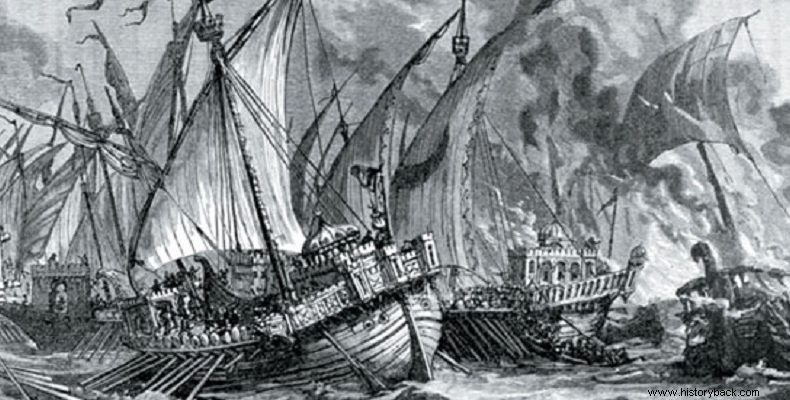
Naval battles in ancient and medieval times were not easy. After the "fires" were fired, the opposing ships would approach and either attempt to ram, or the crews would charge the opposing vessels, or both. All this was extremely difficult on the day and required seamanship and skill in handling. At night, however, it was even more difficult and naval conflicts rarely occurred in the "small" hours.
One of the exceptions was the naval battle of Kefalonia in 880 BC. between Byzantines and Arabs. The Byzantine Empire was also fighting at that time against the Arab dynasty of the Aglavids that dominated North Africa.
Arabs often carried out naval raids against imperial territories. In such a case, the Byzantines were immediately informed by the early warning network that existed on the coasts (vigles) of the approach of a force of 60 "very large", according to the chronicle of Ioannis Skylitzis, Arab ships.
He immediately set sail from the city led by the new Drungarius of Ploimos (admiral in chief) Basileus from Syria, known in history as Nassar. Nassar's fleet arrived at Methoni. But there the Byzantine admiral was faced with the flight of a number of oarsmen.
But soon everyone felt the "iron hand" of the admiral. Order and discipline were restored while soldiers of the Peloponnesian Subject were also assigned to the fleet. Emperor Basil I the Macedonian gathered 30 Saracins in the hippodrome of Constantinople, he ordered and they covered their faces with tobacco and then flogged them before they were executed....
Meanwhile the Arab raiders had learned of the problems the opposing fleet was facing and were encouraged. Many Arabs landed on the shores and began to plunder carelessly... But Nassar was also vigilant. When he learned that the Arabs had relaxed he moved against them. By the time the Byzantine ships arrived near the Arab ones, it was dark. The Arabs they had not realized Nassar's approach and were completely surprised when they were attacked in the dark.
The Byzantines burned the enemy ships with liquid fire. The Arab fleet was destroyed. Those Arab raiders who had set foot on the territory of the Peloponnese were also exterminated. After his victory, Nassar headed with his fleet to southern Italy, reinforcing the generals Procopius and Leo Apostypis who were fighting the Arabs there, winning another great naval victory against the Arabs.
The desertion of rowers is one of historical paradoxes, if not mysteries. Such cases of indiscipline were not common in the Byzantine army and navy. Consequently, there are two causes that may have caused the event. Either the rowers were escaped Arab slaves – hence the emperor's punishment of the Saracens – or it was all a well-orchestrated move by Nassar to put his opponents to sleep.
